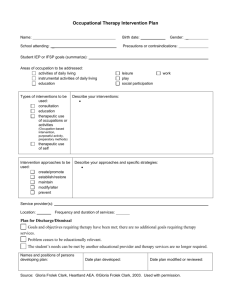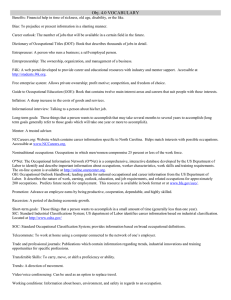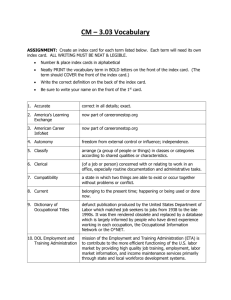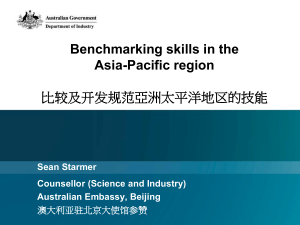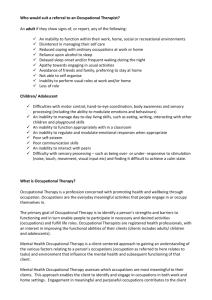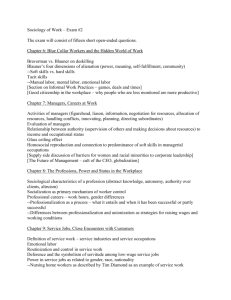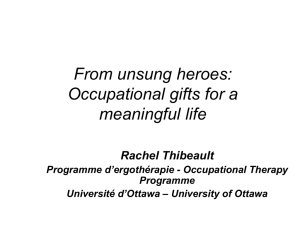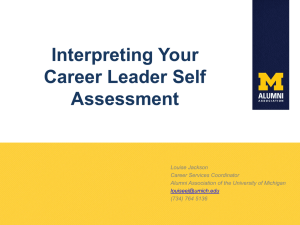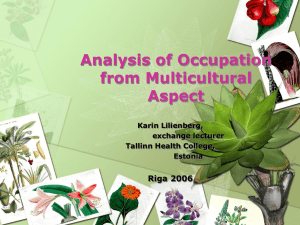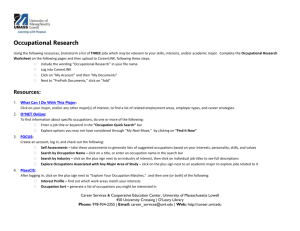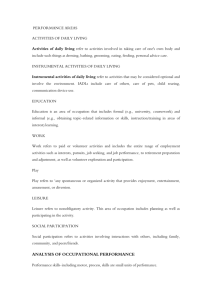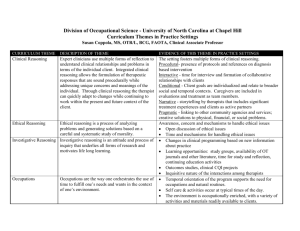OCT 1111 - Chapter 6 - “Occupation and Identity: Becoming Who
advertisement
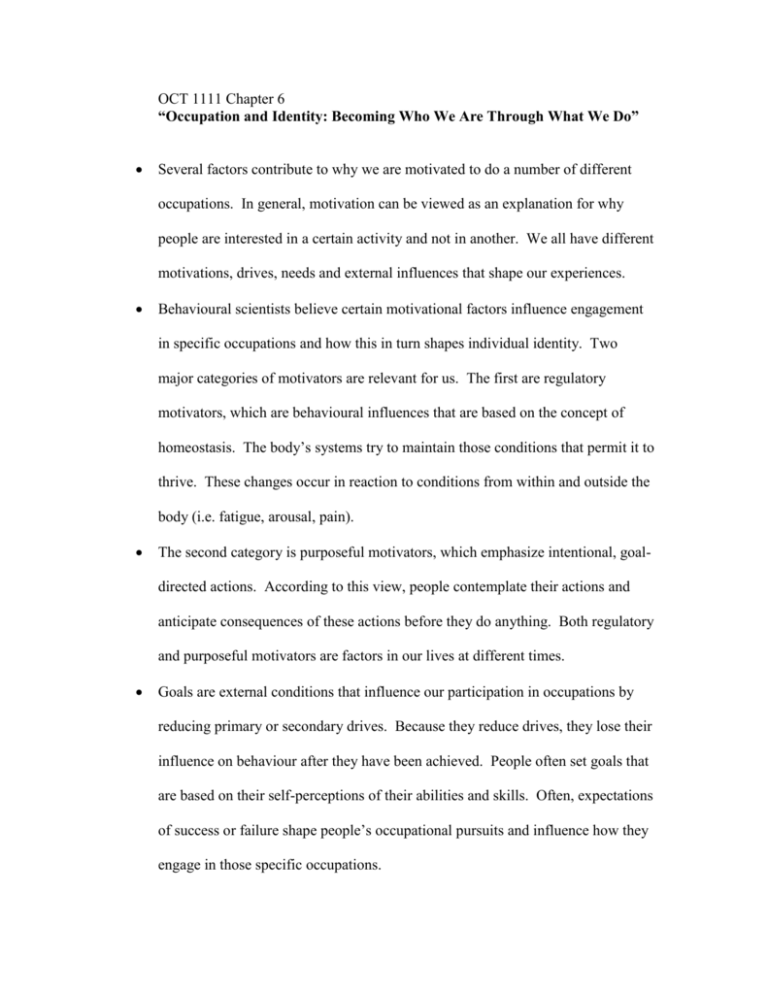
OCT 1111 Chapter 6 “Occupation and Identity: Becoming Who We Are Through What We Do” Several factors contribute to why we are motivated to do a number of different occupations. In general, motivation can be viewed as an explanation for why people are interested in a certain activity and not in another. We all have different motivations, drives, needs and external influences that shape our experiences. Behavioural scientists believe certain motivational factors influence engagement in specific occupations and how this in turn shapes individual identity. Two major categories of motivators are relevant for us. The first are regulatory motivators, which are behavioural influences that are based on the concept of homeostasis. The body’s systems try to maintain those conditions that permit it to thrive. These changes occur in reaction to conditions from within and outside the body (i.e. fatigue, arousal, pain). The second category is purposeful motivators, which emphasize intentional, goaldirected actions. According to this view, people contemplate their actions and anticipate consequences of these actions before they do anything. Both regulatory and purposeful motivators are factors in our lives at different times. Goals are external conditions that influence our participation in occupations by reducing primary or secondary drives. Because they reduce drives, they lose their influence on behaviour after they have been achieved. People often set goals that are based on their self-perceptions of their abilities and skills. Often, expectations of success or failure shape people’s occupational pursuits and influence how they engage in those specific occupations. People also exhibit different personality traits that influence their choice for leisure and vocational pursuits. Thus, someone who is more achievement-motivated may choose an occupation that offers more opportunities for them to grow and learn. According to self-determination theory, agency, competence, and relationships with others are key factors that influence our occupational choices. By developing our own uniqueness and establishing a sense of meaning, we create the conditions through which we establish identities. In turn, we feel productive and are satisfied with what we are doing with our lives. We are motivated to succeed and reinforce our positive ways. If people develop maladaptive habits of unhealthy behaviour, they will feel badly about themselves until they change. Our identity that is shaped by our occupational choices, experiences, and competence influence how we construct and interpret our life stories. By creating new goals that connect with past occupational experiences and making sense of our lives, we can meet life’s many challenges and feel that our life has some purpose.
